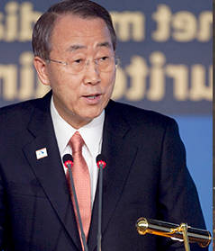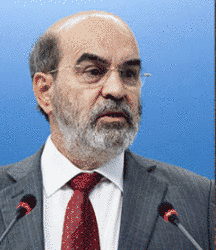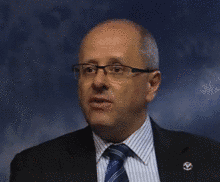Secretary-General's Message for WSD 2016, December 5

"In a modern world where the population is growing, cities are expanding, the climate is changing and more food is needed, we urgently need healthy soils to ensure the essential services they provide. Sustainable management systems and practices will unlock the full potential of soils to support food production, store and supply clean water, preserve biodiversity, sequester more carbon and increase resilience to a changing climate.
Sustainable soil management will also advance progress on the 2030 Agenda for Sustainable Development and the Paris Agreement on climate change. It should become the worldwide norm in order to optimize our use of soil now and preserve and protect it over the long term.
Pulses, also known as grain legumes, can boost soil health while supporting healthier and nutritious diets. Dry beans, peas, lentils and other pulses combine with soil in a unique symbiosis that protects the environment, enhances productivity, contributes to adapting to climate change and provides fundamental nutrients to the soil and subsequent crops. Pulses can fix atmospheric nitrogen in their roots. By freeing soil-bound phosphorous to make it accessible and usable by plants, pulses also reduce the need to apply external fertilizer. These are all drivers of sustainable development.
The international community has identified collaborative and coordinated ways to protect and sustainably manage soils. There are valuable recommendations in the recently endorsed Voluntary Guidelines for Sustainable Soil Management developed by the Global Soil Partnership. Following these guidelines will help pave the way to boosting the health of soil and fully unlocking its potential to support mitigation and adaption actions in a changing climate.
On World Soil Day, I call for greater attention to the pressing issues affecting soils, including climate change, antimicrobial resistance, soil-borne diseases, contamination, nutrition and human health. Let us build on the International Year of Soils 2015, the International Year of Pulses 2016, and all the activities supporting sustainable soil management to generate more hectares of healthy soils everywhere." Ban Ki-Moon
FAO DG's Statement for WSD 2016
 "It is my pleasure to welcome all of you to celebrate the World Soil Day 2016 and the end of the International Year of Pulses.
"It is my pleasure to welcome all of you to celebrate the World Soil Day 2016 and the end of the International Year of Pulses.
I would like to start by paying tribute to His Majesty, late King Bhumibol Adulyadej of Thailand, who was a soil scientist himself and a champion of soil conservation.His dedication to soil improvement and sustainable soil management is well known. His Majesty implemented more than 4 000 projects to support Thai farmers. Earlier today, FAO Council observed a minute’s silence to honour His Majesty, who passed away in October, recognizing his enormous contributions to sustainable agriculture.
Ladies and gentlemen, just last week, FAO and the World Health Organization (WHO) co-organized here in Rome a symposium to discuss sustainable food systems and nutrition. One of the main conclusions was that healthy soils and healthy seeds are essential for producing healthy diets. And pulses play an important role in this equation, especially to improve the quality of soils. This is a symbiosis for life, which is the theme of our event today.
Healthy soils are fundamental to produce clean water, preserve biodiversity, and increase resilience to the impacts of climate change, especially for poor family farmers of developing countries. This is reflected in the Sustainable Development Goals, and was highlighted during the recent UN Climate Conference in Marrakech, COP 22. The cause of soils and their protection is high on the international agenda, and calls for collaborative and coordinated efforts.
In this Session of the FAO Council, Member Countries have endorsed the Voluntary Guidelines for Sustainable Soil Management, which was developed by the FAO’s Global Soil Partnership. These guidelines provide technical and policy recommendations on how to achieve sustainable soil management. Their implementation can pave the way for boosting soil health, and unlocking soil’s potential to support mitigation and adaptation actions in a changing climate.
And to keep up the momentum of the International Year of Soils celebrated in 2015, we will award today, for the first time, the Glinka World Soil Prize. This is in the honour of the Russian scientist Konstantin Glinka. At the beginning of the last century, Glinka developed research and experiences to explore soil erosion and the principles of the geographical distribution of soils. This award aims to recognize the leadership and activities of individuals and organizations in the promotion of sustainable soil management. I take this opportunity to thank the Government of the Russian Federation for the great support to establish the Glinka Prize, as well as to the Global Soil Partnership in general." José Graziano Da Silva
The Video message of the Director of FAO - Land and Water Division

See also:
